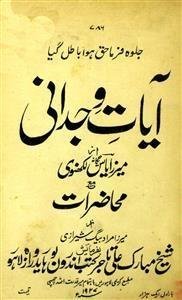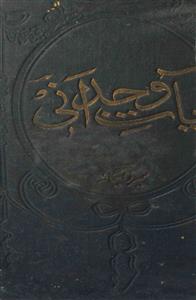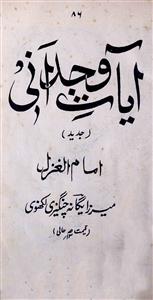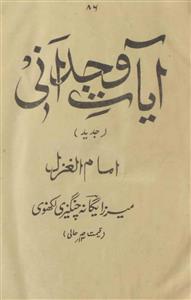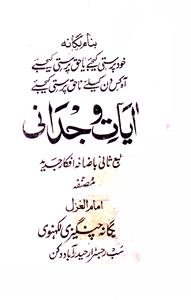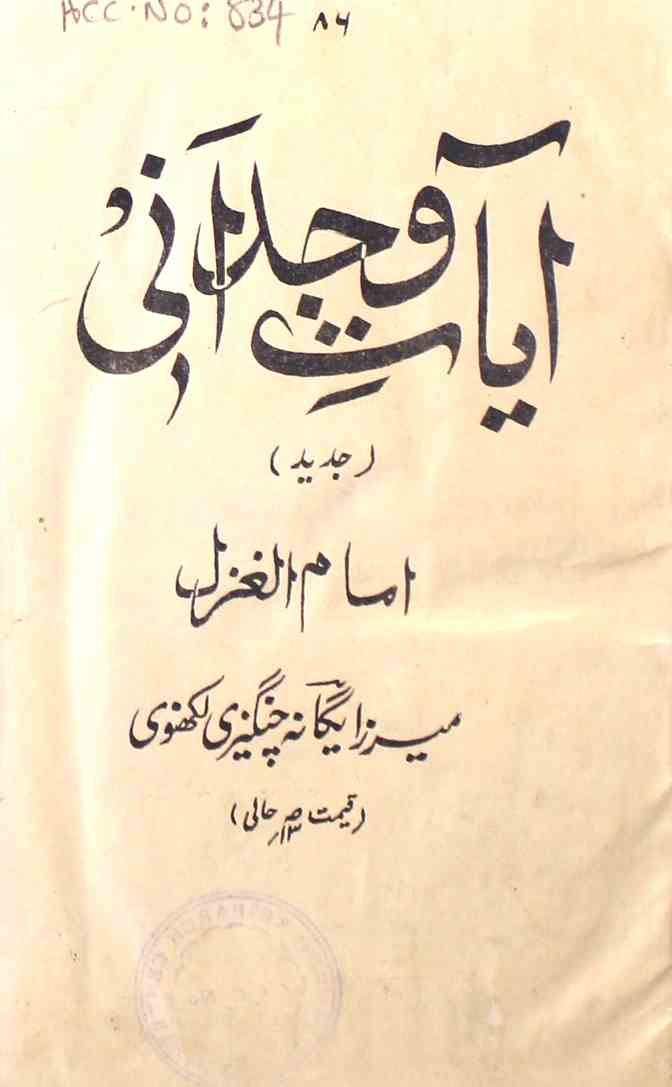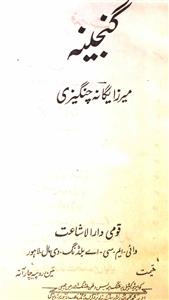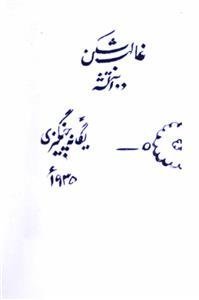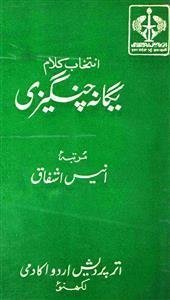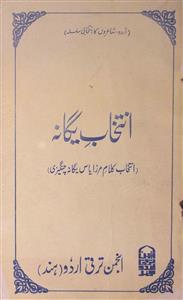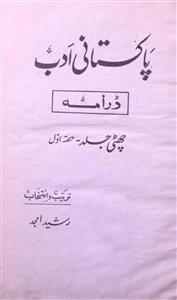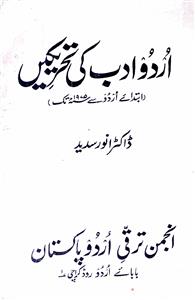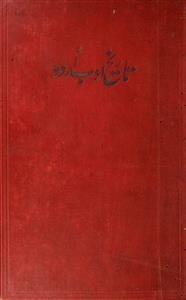 For any query/comment related to this ebook, please contact us at haidar.ali@rekhta.org
For any query/comment related to this ebook, please contact us at haidar.ali@rekhta.org
About The Book
یگانہ چنگیزی کی شاعری غالب کی طرح مروجہ اقدار سے بغاقت کرتی ہوئی شاعری ہے"آیات وجدانی"یگانہ چنگیزی کا دوسرا اور اہم ترین مجموعہ تھا جو 1927 میں منظر عام پر آیا تھا۔ یگانہ کی شاعرانہ اہمیت کا دارو مداربڑی حڈ تک اسی مجموعے پر ہے، اس مجموعہ کویگانہ نے خود ہی چھاپا تھا، اس مجموعہ کے شروع میں دیباچہ ہے،جس کے آخر میں میرزا مراد بیگ شیرازی کا نام درج ہے جو در اصل یگانہ ہی ہیں ، اس کے بعد غزلیات ہیں جن کے ساتھ میرزا مراد بیگ شیرازی کے محاضرات ہیں، جن میں کہیں کسی شعر کی شرح کی ہے، کہیں کسی شعر کے محاسن بیان کئے گئے ہیں اور جگہ جگہ یگانہ کی مبالغہ آمیزتعریف کی گئی ہے، آخر میں متفرقات کے تحت مختلف اشعار ہیں جو محاضرات کے بغیر ہیں۔
About The Author
Yaas Yagana Changezi (1884-1956), whose ancestors had migrated from Iran and joined the Mughal army, was born in Azimabad, now Patna, and named Mirza Wajid Hussain. He also wrote under the pen name of ‘Yaas’ (despair) before choosing ‘Yagana’ (matchless) as his nom de plume. This choice for a change of name reflected his independent and defiant nature. Shad Azimabadi, another major contemporary poet who lived in Azimabad, pruned his taste and helped him hone his skills. Yagana shifted to Calcutta and was also married there, but chose to find a new home in Lucknow only to discover to his utter despair that the place was too unkind to him. As he was egotistical, uncompromising, and unable to control his brusque manners and acerbic expression, he could not strike a chord with the poets there. He caused controversies and came to be identified as a highly non-conformist, controversial, and provocative poet, who found faults even with Ghalib and Iqbal. He further went to the extent of making controversial statements about religious belief and was attacked by a mob.
Quite in keeping with his personality, Yagana’s tone in his poetry was direct, curt, and stinging but he was sober and dignified in his renditions in spite of all his iconoclasm. More than writing about the myriad manifestations of love, he wrote about the manifestations of life in his poetry. He developed a brave and bold attitude towards life and the dignity of man even while he engaged with the oddities of life rather uncompromisingly. A certain sense of scepticism that took him over, did not allow him to achieve a broader philosophical stance in his poetry. Yagana was essentially an interrogator of both life and art, who lived and survived in his individual splendour. Yagana’s works are collected in Nashtar-e Yas, Tarana, Aayat-e Wijdaani, and Ganjina.
 For any query/comment related to this ebook, please contact us at haidar.ali@rekhta.org
For any query/comment related to this ebook, please contact us at haidar.ali@rekhta.org
Write a Review
Jashn-e-Rekhta 10th Edition | 5-6-7 December Get Tickets Here
